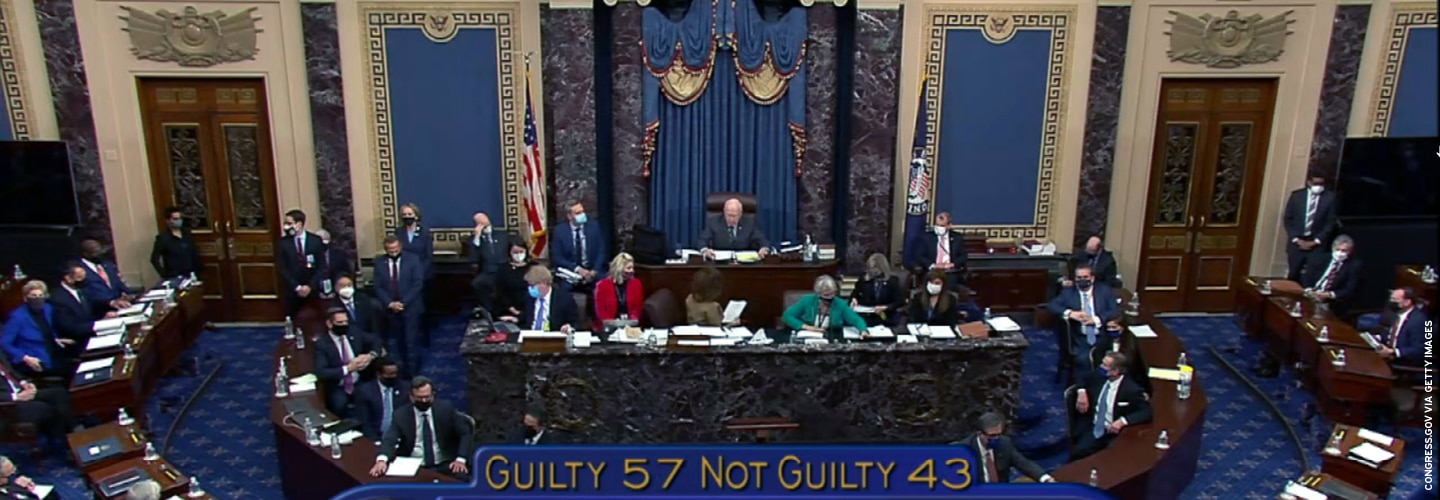The United States Senate on Saturday voted to acquit former President Donald Trump of inciting the January 6 rampage at the U.S. Capitol, bringing his dramatic and historic second impeachment trial to a close.
Under the watch of National Guard troops still patrolling the Capitol, the Senate rejected the charge of “incitement of insurrection,” by falling short of the two-thirds majority (67 votes) needed to convict the former president. The vote was 57-43 in favor of conviction.
Seven Republicans broke with their party and joined all 48 Democrats and the two Independents who caucus with Democrats in voting to convict Trump. That’s the largest number of senators who have ever voted to convict a president from their own political party.
At the close of the trial, many Republican senators said the House managers—members of the House of Representatives who served as the prosecution—didn’t prove that Trump was at fault for the violence at the Capitol. Republicans also cited constitutional reasons for their acquittal, arguing that a president can’t be subject to impeachment once he’s already out of office.
“The House managers’ burden in this trial was to prove first, that the Senate should exercise its impeachment jurisdiction in a case against a former president,” said Mike Lee, a Republican Senator from Utah, “and second, that he committed the high crime of inciting an insurrection. The House managers did not clear either hurdle.”
Other Republicans, however, said that although they couldn’t vote to convict for constitutional reasons, they believed Trump was responsible for the insurrection. Senator Mitch McConnell of Kentucky, the Republican leader, expressed these views in a speech shortly after voting to acquit.
“There is no question—none—that President Trump is practically and morally responsible for provoking the events of the day,” McConnell said. “The leader of the free world cannot spend weeks thundering that shadowy forces are stealing our country and then feign surprise when people believe him and do reckless things.”
Democratic leaders decried the Senate’s vote to acquit Trump. They accused Republicans who condemned Trump’s actions while voting to acquit him for Constitutional reasons of trying to have it both ways.
“January 6th will live as a day of infamy in the history of the United States of America,” said Senator Chuck Schumer, Democrat of New York and the majority leader. “The failure to convict Donald Trump will live as a vote of infamy in the history of the United States Senate.”

